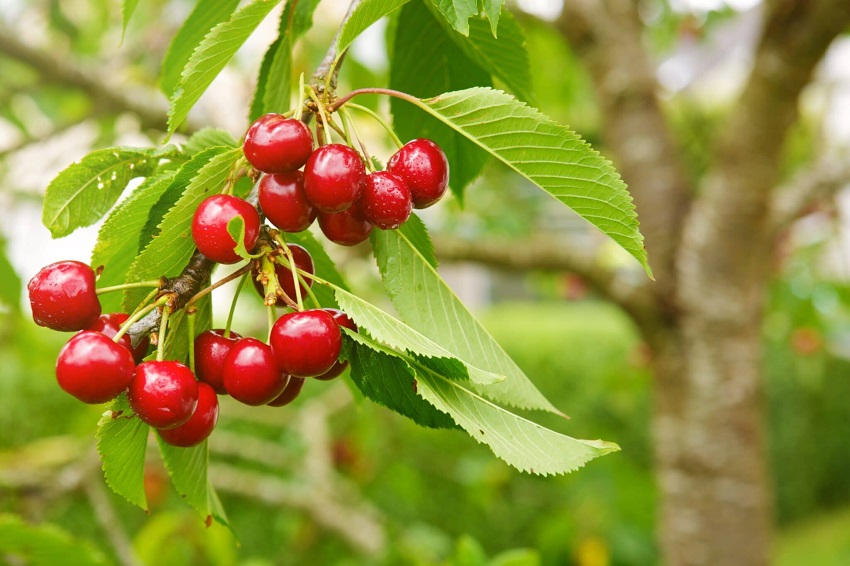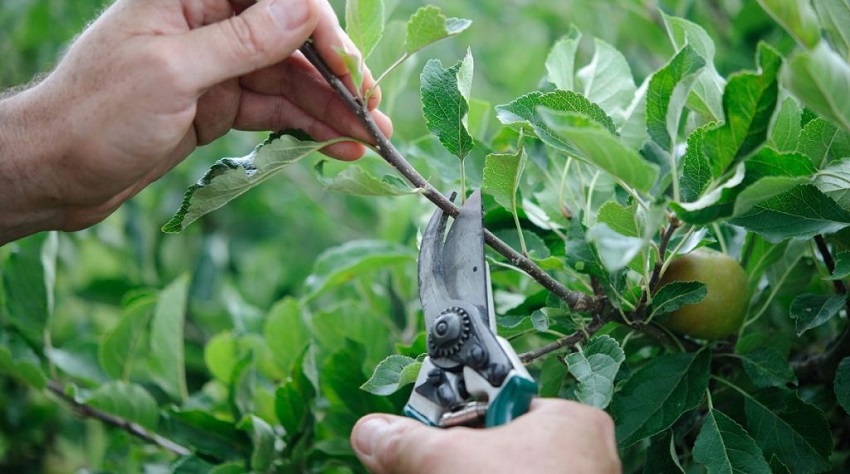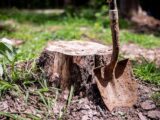When it comes to growing fruit trees, many people are eager to see results as quickly as possible. The thrill of planting a tree and watching it grow, blossom, and bear fruit is undoubtedly an exciting experience. But which fruit tree grows the fastest? In this article, we will explore different fruit tree varieties and discuss the factors that affect their growth rate. So, let’s embark on this horticultural journey and discover the fastest-growing fruit trees!
Understanding Growth Rates of Fruit Trees
Before we delve into the specific fruit tree varieties that grow the fastest, it’s essential to understand the factors that influence the growth rate of trees in general. One of the most rewarding gardening experiences is growing fruit trees. Fruit trees, like any other plants, require suitable environmental conditions to thrive and grow vigorously. When it comes to lemon tree growth stages, it’s essential to provide the right amount of light, water, and nutrients to ensure healthy and productive growth. Let’s look at some key factors that affect the growth rate of fruit trees:
1. Climate and Hardiness
Climate plays a significant role in determining the growth rate of fruit trees. Different fruit tree varieties have specific climatic requirements. Some trees thrive in warm, tropical climates, while others prefer cooler temperatures. Understanding your local climate and selecting tree varieties that are well-suited to your region is crucial for optimal growth.
2. Soil Conditions and Nutrient Availability
Healthy and fertile soil is vital for the fast growth of fruit trees. Fruit trees require well-draining soil that is rich in organic matter and nutrients. Before planting a fruit tree, it is advisable to prepare the soil by adding compost or other organic amendments to improve its structure and fertility.
3. Watering and Irrigation
Adequate watering is critical for the fast and healthy growth of fruit trees. Young trees, in particular, require regular watering to promote root development and establishment. Proper irrigation practices should be followed to ensure that the tree receives the right amount of water without becoming waterlogged.
4. Pruning and Training
Pruning and training fruit trees play a crucial role in shaping their growth and optimizing fruit production. Regular pruning helps maintain the tree’s size, shape, and overall health. Pruning also promotes air circulation and sunlight penetration, which contribute to faster growth and better fruit quality.
Fast-Growing Fruit Tree Varieties
Now that we understand the factors that impact the growth rate of fruit trees let’s explore some fruit tree varieties that are known for their fast growth.
1. Apple Trees (Malus domestica)
Apple trees are a popular choice among fruit growers for their versatility and delicious fruit. Some apple tree varieties, such as ‘Honeycrisp’ and ‘Gala,’ are known for their relatively fast growth rate. These trees can reach a height of 10 to 15 feet within a few years under ideal conditions.
2. Peach Trees (Prunus persica)
Peach trees are not only renowned for their mouthwatering fruit but also for their fast growth. Varieties like ‘July Elberta’ and ‘Redhaven’ are known to grow quickly, with some achieving heights of up to 15 feet within three to four years.
3. Cherry Trees (Prunus avium)
Cherry trees are a beautiful addition to any garden, and they can also grow quite rapidly. Varieties such as ‘Stella’ and ‘Bing’ are known for their fast growth and can reach a height of 10 to 12 feet within three to four years.
4. Pear Trees (Pyrus communis)
Pear trees are known for their elegant form and delectable fruit. Some varieties, like ‘Bartlett’ and ‘Anjou,’ exhibit fast growth rates and can reach heights of 10 to 15 feet within a few years.
It’s important to note that the growth rate of fruit trees can vary depending on various factors, including the specific variety, environmental conditions, and proper care and maintenance.
Factors Affecting the Growth Rate of Fruit Trees
While certain fruit tree varieties may grow faster than others, it’s essential to consider individual factors that influence growth rates. Here are some additional factors to consider when seeking fast-growing fruit trees:
1. Rootstock Selection
Fruit trees are often grafted onto rootstocks to improve characteristics such as disease resistance, size control, and adaptation to different soil conditions. Some rootstocks offer faster growth rates than others. When purchasing fruit trees, inquire about the rootstock used and its growth characteristics.
2. Tree Age and Size at Purchase
The age and size of the fruit tree at the time of purchase can impact its initial growth rate. Younger trees tend to establish and grow faster than older, more mature trees. However, keep in mind that even with a smaller tree, it still takes time for it to reach its full potential and produce abundant fruit.
3. Proper Care and Maintenance
To ensure the fastest growth rate of any fruit tree, providing proper care and maintenance is crucial. This includes regular watering, adequate fertilization, timely pruning, pest and disease control, and protecting the tree from extreme weather conditions. By providing optimal conditions and care, you can maximize the growth potential of your fruit trees.
Conclusion
While many fruit tree varieties offer fast growth rates, it’s important to remember that patience is still necessary when it comes to witnessing substantial fruit production. Apple, peach, cherry, and pear trees are known for their relatively fast growth, but individual growth rates can vary depending on various factors.
When selecting fruit trees, consider your climate, soil conditions, available space, and personal preferences. Research different varieties, consult with local experts or nurseries, and choose trees that are well-suited to your specific conditions. With proper care and maintenance, you can nurture your fruit trees and enjoy the rewards of their fast growth and bountiful harvests.
FAQs (Frequently Asked Questions)
- Can I grow fruit trees from seeds, or should I purchase grafted trees?
While it’s possible to grow fruit trees from seeds, it’s generally recommended to purchase grafted trees. Grafted trees offer improved characteristics, such as disease resistance and consistent fruit quality. Growing from seeds can be unpredictable and may result in trees that differ greatly from the parent plant.
- How long does it take for fruit trees to bear fruit?
The time it takes for fruit trees to bear fruit varies depending on the specific tree variety, growing conditions, and care provided. Some fruit trees can start producing fruit within three to five years, while others may take longer, sometimes up to ten years. Patience is key when it comes to fruit tree cultivation.
- Do fast-growing fruit trees require more maintenance than slower-growing ones?
Fast-growing fruit trees may require more frequent pruning to maintain their shape and size. Additionally, they may need extra attention to ensure proper nutrient uptake and watering. However, the overall maintenance requirements of fruit trees, whether fast or slow-growing, are relatively similar.
- Can I grow fruit trees in containers or pots?
Yes, many fruit tree varieties can be successfully grown in containers or pots. This is particularly useful for those with limited garden space or for individuals who want the flexibility to move the trees indoors during colder months. Choose dwarf or patio tree varieties suitable for container gardening.
- Are there any fruit trees that are known for their slow growth rate?
Yes, some fruit tree varieties are known for their slower growth rates. Examples include some types of citrus trees such as grapefruit and some varieties of pomegranate trees. Their slower growth does not necessarily indicate poor health or fruit production, but it is important to set realistic expectations when cultivating these trees.
With proper care and attention, any fruit tree, whether fast or slow-growing, can provide years of beauty and deliciously fresh fruit to enjoy. Happy growing!





